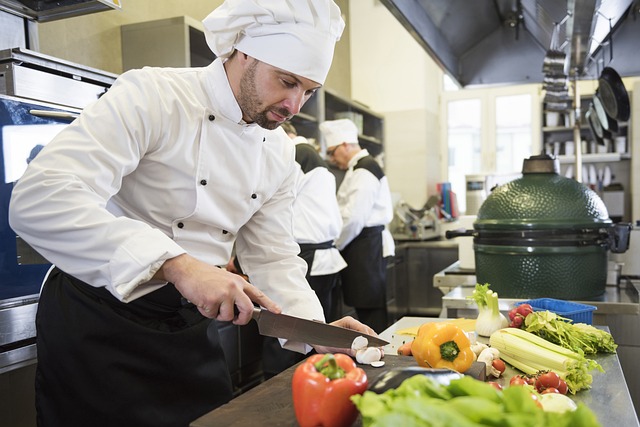Culinary Jobs: Roles, Skills, and Work Environments
Culinary jobs cover a broad spectrum of roles that support the planning, preparation, and presentation of food. From line cooks in a busy restaurant kitchen to pastry cooks crafting dessert plates for hotel events, these positions focus on consistent meal preparation, safe handling of ingredients, and teamwork under time pressure. Practical skills, hygiene standards, and adaptability shape daily duties across venues worldwide.

What do chefs and kitchen staff do?
Chefs and kitchen staff coordinate food preparation, manage ingredient flow, and execute dishes to recipe and service standards. Tasks range from basic vegetable and meat prep to plating desserts and coordinating with front-of-house teams. In larger operations, chefs focus on menu development and supervision while cooks and kitchen porters handle mise en place, cleaning, and routine tasks. Meal preparation requires knowledge of cooking methods, timing, and portion control to maintain consistent food quality and minimize waste.
How do different venues vary?
Work environments influence pace and responsibilities: a restaurant kitchen often emphasizes quick service and a focused menu, while a hotel kitchen may balance breakfast buffets, room service, and banquet catering. Events and catering require mobility, planning for equipment and transport, and collaboration with venue staff. Grill stations demand heat management and timing for proteins, whereas sushi preparation centers on precision, fish handling, and knife skills. Understanding venue-specific workflows helps workers adapt processes and prioritize tasks.
What skills matter for sushi, grill, and general cooking?
Technical skills include safe knife use, temperature control, and effective seasoning. Sushi roles require precise knife techniques for fish and rice handling and awareness of cultural practices associated with Japanese cuisine. Grill cooks must manage searing, carryover cooking, and doneness for various cuts of meat and vegetables. Pastry and dessert preparation require accurate measuring and temperature-sensitive techniques. Across specialties, sensory evaluation—taste, texture, and presentation—guides refinement of recipes and consistency.
What are hygiene and uniform expectations?
Consistent hygiene and smart uniforms are central to culinary roles. Standard expectations include clean uniforms, appropriate footwear, hair restraints, and minimal jewelry to reduce contamination risk. Kitchen hygiene encompasses handwashing, correct storage temperatures for perishable items like fish and meat, and separation of raw and cooked ingredients. Regular cleaning schedules for workstations and equipment, along with monitoring for cross-contamination, support food safety. Employers and teams usually follow local food safety regulations and internal protocols to protect diners and staff.
How can aspiring workers build experience and progress?
Hands-on practice in local services such as restaurants, hotels, and catering companies is a common pathway. Formal culinary programs can teach foundational techniques and kitchen theory, while apprenticeships and stage opportunities in different venues deepen experience with specific tasks like sushi preparation or pastry work. Volunteering for events or helping with catering allows exposure to service planning and logistics. Networking with chefs and seeking mentorship help clarify career steps toward supervisory roles or specialty positions. Continual skill development and familiarity with kitchen equipment and hygiene standards support upward movement.
Conclusion
Culinary jobs combine technical skill, organizational ability, and adherence to hygiene standards across diverse settings such as restaurants, hotels, and catering events. Whether focusing on sushi, grilling, pastry, or general cooking, successful roles emphasize consistent meal preparation, proper knife handling, and effective teamwork. Building experience through varied kitchen environments and understanding venue-specific demands can prepare individuals for sustained work in the culinary field.





